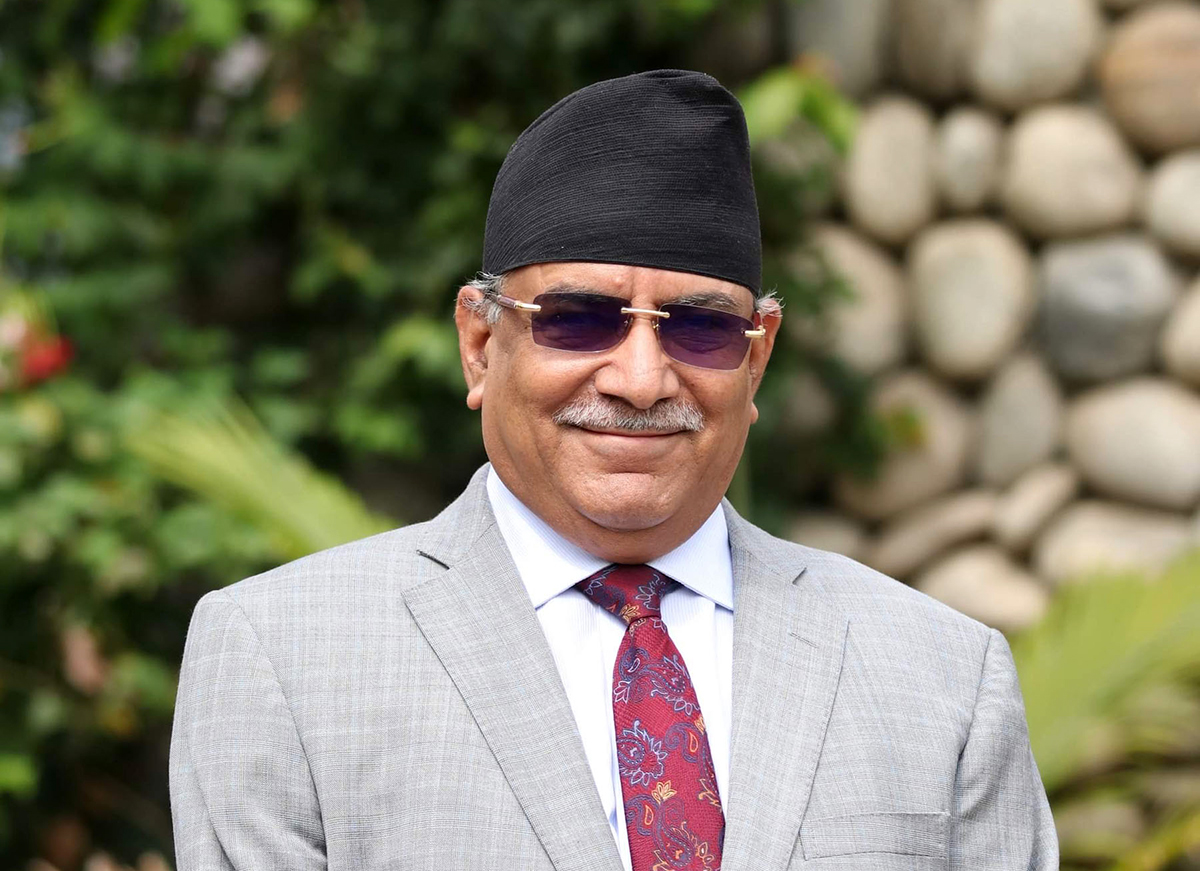The Supreme Court’s (SC) order on Friday to register two writ petitions seeking arrest of CPN (Maoist Center) Chairman and PM Pushpa Kamal Dahal has stirred Nepali politics.
Maoist Center has been the most agitated by this order while those who were with the then Maoist party at the time of armed conflict but have since left the party led by Dahal have also come together due to the SC order.
Leaders from the eight parties in the Maoist stream met at the PM’s residence in Baluwatar Tuesday morning and issued a statement stressing that they are together in countering the activities against the Comprehensive Peace Agreement (CPA) and political changes.
Reactions from the leaders of Maoist Center in the past four days show that they seem to fear as if the SC is going to rule Dahal to be guilty. But the nature of the petitions shows that Maoist Center need not be so apprehensive.
The petitions by advocate Gyanendra Aran and Kalyan Budhathoki have been registered on Tuesday following the SC’s order on Friday and the Apex Court has scheduled preliminary hearing on the petitions for Thursday, March 9.
Addressing an event organized at Khula Manch in Kathmandu on the occasion of Maghi on January 15, 2020, Dahal had refuted allegations that he had killed 17,000 people during the decade-long Maoist armed conflict but said that he would take responsibility for the deaths of 5,000 of those killed during that period. He had also said that he would take responsibility for all the good and bad things that happened during the armed conflict.
The duo has demanded that Dahal be arrested on the basis of that statement and be tried for conflict-era cases.
If Dahal were to be arrested and tried for stating that he takes responsibility for 5,000 lives who would take responsibility for the remaining 12,000 lives? A total of 13,248 people were killed during the armed conflict as per the Informal Sector Service Center even though the total number of deaths in the conflict is widely claimed to be 17,000. The state killed 7,905 persons and the Maoists 5,049, according to INSEC.
Legal experts say resolution to conflict-era cases cannot be found through regular court process as the Nepali state has already accepted the armed conflict as a political issue.
They opine that Maoists need not be worried merely because petitions have been registered in the SC.
Senior advocate Sunil Pokharel said that the SC can order to initiate investigation of conflict-era cases through the petitions. “The SC has already ordered to formulate law to conclude transitional cases. It has also ordered that court hearing should be held in cases of murder, torture, forced disappearances and rapes. The SC can also order saying the defendants must be investigated. We have the precedence of an order given to initiate investigation against Maoist leader Agni Sapkota.”
He opined that the Maoists need not worry merely because of the order to register the petitions and the subsequent registration of petitions.
Another senior advocate Tikaram Bhattarai also concurred. “The petitions have just been registered. It does not seem that the SC will immediately enter the subjects. There are two possibilities in the case. The first is it can be revoked prima facie. There can also be order to seek written response. It will then enter the long process of court case. The government and the House can pass the laws related to TRC by then. The SC may say it need not do anything saying it is under jurisdiction of the TRC if that happens.”
Bhatarai said that the SC’s reasoning while ordering registration of the petitions that conflict-era cases cannot be stretched for eternity is appropriate. “The SC can order to initiate investigation of conflict-era incidents if the laws are not formulated to address that. But it cannot order to arrest (Dahal) through these petitions.
He added that Maoist Center should take this SC order to register the petitions as an opportunity to formulate laws. “But I think Maoist Center has used this issue as a political weapon. I feel this is a political stunt to try to bring all those who have split from Maoist Center together and to continue the coalition with Nepali Congress pointing that the two parties not remaining together may cause trouble for them as one party represents the then rebels while the other headed the then government.”
The SC has been showing apt concern that the conflict-era cases cannot be stretched for eternity even in the past and it can again reiterate its concern. But Maoist Center has been portraying this issue as an attack against the CPA and the Constitution.
The Truth and Reconciliation Commission (TRC) and the Commission of Investigation on Enforced Disappeared Persons have been formed to resolve conflict-era cases but they have yet to start work in earnest due to lack of agreement among the political parties.
Maoist Center General Secretary Dev Gurung pointed that the issue cannot be resolved merely by initiation of one party, and trying to infringe on the jurisdiction of the transitional justice mechanism is against the spirit of the CPA and the Constitution.

